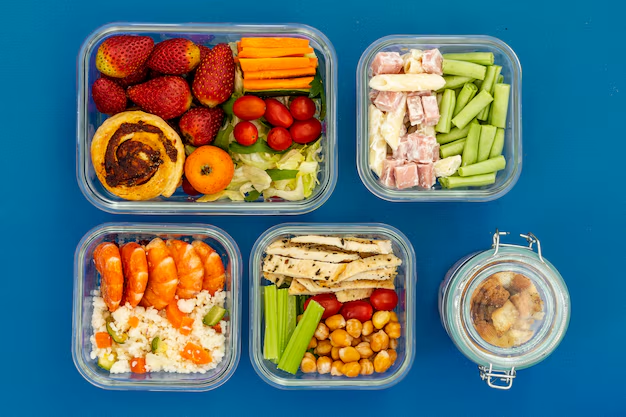How Long Will Your Homemade Soup Stay Fresh in the Fridge?
When you make a delicious pot of soup, the idea of storing and enjoying it over the weeks can be comforting. But how long does soup really last in the refrigerator before it loses its glory? Navigating the ins and outs of this culinary question means diving into the world of ingredients, storage techniques, and signs to watch for when it might be time to say goodbye to that batch of minestrone. Understanding the longevity of soup in your fridge can help ensure you enjoy your favorite recipes safely.
🥄 Understanding Soup and Its Ingredients
The Role of Ingredients in Shelf Life
The shelf life of soup heavily depends on its ingredients. Soups rich in dairy, such as cream-based soups, might not last as long as those made with a broth or vegetable base. Dairy can spoil quickly if not stored properly. Similarly, soups containing meat may have a shorter refrigerator life compared to vegetable-only soups. The quality, freshness, and type of each ingredient play a significant role in determining how long your soup will remain fresh.
Balance and Preservation
Preserving your favorite soup also involves balancing its ingredients. Soups with a high salt content or those made with certain preservatives can stay fresh longer than their lower-salt counterparts. When cooking, consider adding ingredients that naturally prolong the shelf-life of your soup while still keeping it delicious and nutritious.
🍲 Storing Soup: Best Practices
Proper storage is key to making your soup last in the refrigerator. Here are some best practices to help extend the shelf life of your soup:
Cool Before Storing: Before putting soup in the fridge, let it cool to room temperature. Place it in the refrigerator within two hours of cooking to prevent bacterial growth.
Use Airtight Containers: Store soup in airtight containers to minimize exposure to air and contaminants, ensuring it remains fresh.
Portion Wisely: If possible, divide soup into smaller portions. This method speeds up cooling and reheating processes and reduces the risk of contamination.
Label with Date: Clearly label containers with the date they were stored. Knowing the timeline helps keep track of freshness and when to consume them.
🕒 How Long Soup Generally Lasts
General Timeline for Soup Storage
On average, homemade soup lasts about 3 to 4 days in the refrigerator. This general timeline helps maintain both safety and quality. However, soups with different ingredients may vary in longevity.
- Broth-Based Soups: Can last up to five days in the fridge if stored properly.
- Cream-Based Soups: Often stay fresh for only three days due to the presence of dairy.
- Fish Soups: These should be consumed within 1 to 2 days because seafood deteriorates quickly.
🛑 Watch for Signs of Spoilage
Even with careful storage, it is essential to keep an eye out for signs of spoilage. If your soup shows any of the following symptoms, it's time to let it go:
- Off Smell: A sour or rancid odor indicates spoilage.
- Mold Growth: Visible mold, even if it's small, means the soup is no longer safe to eat.
- Unusual Taste or Texture: If the taste or texture seems off or different from when freshly made, it might have spoiled.
🚰 Safely Reheating Your Soup
Reheating Tips
Reheating soup can pose risks if not done correctly. It's crucial to ensure your soup reaches a safe temperature to kill any potential bacteria.
- Use a Stovetop or Microwave: Both methods work well, but make sure the soup reaches an internal temperature of at least 165°F (74°C) to ensure all harmful bacteria are killed.
- Stir Well: During reheating, stir frequently to distribute heat evenly throughout the soup.
- Avoid Multiple Reheats: Each time you reheat a portion, it should be consumed entirely. Avoid reheating soup multiple times to maintain quality and reduce risk.
🧊 Freezing Soup for Longevity
When you're not sure you'll finish your soup within the refrigerator time frame, freezing can be an excellent alternative.
Best Practices for Freezing
- Cool Before Freezing: Just like refrigerating, ensure your soup is cooled before placing it in the freezer.
- Use Freezer-Safe Containers: Choose containers designed for freezing to avoid cracking or freezer burn.
- Label and Date Containers: Helps in keeping track when it was frozen and what it contains.
- Leave Space for Expansion: Liquids expand when frozen, so leave an inch of headspace in your containers.
How Long Can You Freeze Soup?
Most soups can be safely frozen for up to 2 to 3 months. Beyond this, the flavor and texture may degrade, but they remain safe to consume.
🌟 Quick Summary Section
Here are some key takeaways and practical tips to remember when storing and reheating your soup:
- 📅 3-4 Days in Fridge: Most soups last about 3 to 4 days when stored properly.
- 🥶 2-3 Months in Freezer: Consider freezing if you need longevity.
- 🥄 Reheat Safely: Ensure soup reaches at least 165°F (74°C).
- 📘 Label Containers: Always date and label for easy tracking.
- 🚫 Watch for Spoilage: Keep an eye on color, smell, and texture.
Understanding how long soup lasts in the refrigerator revolves around the ingredients used, proper storage practices, and recognizing signs of spoilage. By following these guidelines, you can safely enjoy your homemade soup over several meals, minimizing waste and maximizing culinary delight.

